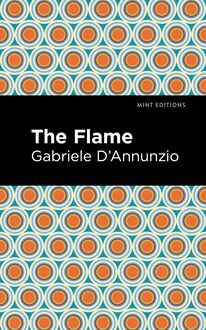-
 Univers
Univers
-
 Ebooks
Ebooks
-
 Livres audio
Livres audio
-
 Presse
Presse
-
 Podcasts
Podcasts
-
 BD
BD
-
 Documents
Documents
-
- Cours
- Révisions
- Ressources pédagogiques
- Sciences de l’éducation
- Manuels scolaires
- Langues
- Travaux de classe
- Annales de BEP
- Etudes supérieures
- Maternelle et primaire
- Fiches de lecture
- Orientation scolaire
- Méthodologie
- Corrigés de devoir
- Annales d’examens et concours
- Annales du bac
- Annales du brevet
- Rapports de stage
La lecture à portée de main
Vous pourrez modifier la taille du texte de cet ouvrage
Découvre YouScribe en t'inscrivant gratuitement
Je m'inscrisDécouvre YouScribe en t'inscrivant gratuitement
Je m'inscrisEn savoir plus
Vous pourrez modifier la taille du texte de cet ouvrage
En savoir plus

Description
Wormwood (1890) is a novel by Marie Corelli. Published at the beginning of Corelli’s career as one of the most successful writers of her generation, Wormwood combines realism, social commentary, and family drama to tell a story of murder, revenge, and addiction set in the bustling city of Paris. Due for reassessment by a modern audience, Marie Corelli’s work—which has inspired several adaptations for film and theater—is a must read for fans of nineteenth century fiction. “Men such as ‘Gaston Beauvais’ are to be met with every day in Paris—and not only in Paris, but in every part of the Continent where the Curse, which forms the subject of this story, has any sort of sway. The morbidness of the modern French mind is well known […]; the open atheism, heartlessness, flippancy, and flagrant immorality of the whole modern French school of thought is unquestioned.” Intended as a rallying cry to English readers, Wormwood states quite clearly Corelli’s beliefs on progressivism and the dangers of alcohol. Echoing the popular realist novels of French contemporary Emile Zola, Corelli provides a gritty portrait of ambition and suffering in Paris. When young Gaston Beauvais is betrayed by his fiancée and best friend, he turns from a life of promise to the promise of absinthe, beginning a tragic spiral into violence and despair. Addressing philosophical, psychological, and religious themes, Wormwood is a moving work of fiction which asks important questions about an emerging modern world. With a beautifully designed cover and professionally typeset manuscript, this edition of Marie Corelli’s Wormwood is a classic work of English literature reimagined for modern readers.
Sujets
Informations
| Publié par | Mint Editions |
| Date de parution | 21 juin 2021 |
| Nombre de lectures | 2 |
| EAN13 | 9781513288659 |
| Langue | English |
| Poids de l'ouvrage | 2 Mo |
Informations légales : prix de location à la page 0,0500€. Cette information est donnée uniquement à titre indicatif conformément à la législation en vigueur.
Extrait
Wormwood
Marie Corelli
Wormwood was first published in 1890.
This edition published by Mint Editions 2021.
ISBN 9781513283630 | E-ISBN 9781513288659
Published by Mint Editions®
minteditionbooks.com
Publishing Director: Jennifer Newens
Design & Production: Rachel Lopez Metzger
Project Manager: Micaela Clark
Typesetting: Westchester Publishing Services
C ONTENTS S PECIAL P REFACE TO THE A MERICAN E DITION I NTRODUCTORY N OTE I II III IV V VI VII VIII IX X XI XII XIII XIV XV XVI XVII XVIII XIX XX XXI XXII XXIII XXIV XXV XXVI XXVII XXVIII XXIX XXX XXXI XXXII XXXIII XXXIV XXXV L’ ENVOI
S PECIAL P REFACE TO THE A MERICAN E DITION
As there are several unauthorized Editions of my works now circulating freely in the United States, it is but fair to the publishers of the present volume to state that this issue of “Wormwood; A Drama of Paris,” has been personally revised and corrected for them by me, and is the O NLY Authorized version for America. Other novels of mine, notably “A Romance of Two Worlds,” “Thelma,” Vendetta!” and “Ardath” are to be had in various forms at all prices throughout the States; needless to say that these have been published without any reference to me as author, and, having been brought out in unseemly haste and carelessness, are full of the grossest errors and mistakes, for which I, naturally, cannot be responsible. That the “Romance of Two Worlds” for example, appeared in New York with a misleading picture-cover representing the Eastern and Western hemispheres, whereas the story itself concerns this world and the next, merely shows the zeal of the enterprising publisher who produced it at all risks without reading it;—and that the American editions of “Vendetta!” contain the maddest misprints in certain Italian idiomatic expressions, must not be set down to my charge as to one ignorant of the Italian language, but to the admirably “go-ahead” individuals in the book-trade who “rushed it through” for the American public. I have reason to love America for the sake of the many friends my writings have won for me there; friends whose faces I have never seen, but who correspond frequently with me and whom I seem familiarly to know through the kindly written expression of their thoughts;—and it is, I presume, not an unnatural desire on my part that such should, when reading my books, at least have the advantage of reading them as they were originally written. With regard to the present story, which I trust may help to rouse public attention to a pernicious Evil which is gradually spreading over all the European Continent, I believe most intelligent Americans who have visited Paris will read it with more or less anxious interest. It was, I think, a distinguished American Senator who quite recently wrote a long and exhaustive practical account of incalculable mischief wrought by the Poison-craze whose dire effects on one individual I have attempted to depict; and if one or two more leaders among thinkers, physiologists and scientists would raise their voices to aid in denouncing this fatal brain-degradation and bringing it well before the consideration of those who are the heads of authority in France, it might be checked in its destructive progress, and, with a little earnest and decisive work, be stamped out altogether, as a disease is stamped out by perfect sanitation. In this hope I have written “Wormwood”; in this spirit I trust it may be received.
M ARIE C ORELLL
L ONDON , October 24, 1890
I NTRODUCTORY N OTE
The unhappy hero of the following drame is presented to English readers, not as an example of what is exceptionally tragic and uncommon, but simply as a very ordinary type of a large and ever-increasing class. Men such as “Gaston Beauvais” are to be met with every day in Paris,—and not only in Paris, but in every part of the Continent where the Curse, which forms the subject of this story, has any sort of sway. The morbidness of the modern French mind is well known and universally admitted, even by the French themselves; the open atheism, heartlessness, flippancy, and flagrant immorality of the whole modern French school of thought is unquestioned. If a crime of more than usual cold-blooded atrocity is committed, it generally dates from Paris, or near it;—if a book or a picture is produced that is confessedly obscene, the author or artist is, in nine cases out of ten, discovered to be a Frenchman. The shop-windows and bookstalls of Paris are of themselves sufficient witnesses of the national taste in art and literature,—a national taste for vice and indecent vulgarity which cannot be too sincerely and compassionately deplored. There are, no doubt, many causes for the wretchedly low standard of moral responsibility and fine feeling displayed by the Parisians of today—but I do not hesitate to say that one of those causes is undoubtedly the reckless Absinthe-mania, which pervades all classes, rich and poor alike. Everyone knows that in Paris the men have certain hours set apart for the indulgence of this fatal craze as religiously as Mussulmen have their hours for prayer,—and in a very short time the love of the hideous poison clings so closely to their blood and system that it becomes an absolute necessity of existence. The effects of its rapid working on the human brain are beyond all imagination horrible and incurable, and no romancist can exaggerate the terrific reality of the evil. If any of my readers are disposed to doubt the possibility of the incidents in my story or to think the details exaggerated, let such make due inquiries of any leading member of the French medical faculty as to the actual meaning of A BSINTHISM , and the measured statement of the physician will seem wilder than the wildest tragedy. Moreover, it is not as if this dreadful frenzy affected a few individuals merely,—it has crept into the brain of France as a nation, and there breeds perpetual mischief,—and from France it has spread, and is still spreading, over the entire Continent of Europe. It must also be remembered that in the many French caf é s and restaurants which have recently sprung up in London, Absinthe is always to be obtained at its customary low price,—French habits, French fashions, French books, French pictures, are particularly favored by the English, and who can predict that French drug-drinking shall not also become à la mode in Britain?—particularly at a period when our medical men are bound to admit that the love of Morphia is fast becoming almost a mania with hundreds of English women!
In the present story I have, as I say, selected a merely ordinary Parisian type; there are of course infinitely worse examples who have not even the shadow of a love-disappointment to excuse them for their self-indulgence. All I ask of my readers and critics is that they will kindly refrain from setting down my hero’s opinions on men and things to me personally, as they were unwise enough to do in the case of a previous novel of mine entitled “Vendetta!” When an author depicts a character, he is not of necessity that character himself; it would have been somewhat unfair to Balzac, for example, to have endowed him when a living man, with the extraordinary ideas and outrageous principles of his matchless artistic creation “P è re Goriot.” I have nothing whatever to do with the wretched “Gaston Beauvais” beyond the portraiture of him in his own necessarily lurid colors;—while for the description of the low-class “ bal masqu é ” in Paris, I am in a great measure indebted to a very respectable-looking English tourist, who by his dress was evidently of some religious persuasion, and whom I overheard talking to a younger man, on board a steamer going from Thun to Interlaken. It was evidently the worthy creature’s first trip abroad,—he had visited the French capital, and he detailed to his friend, a very hilarious individual, certain of his most lively experiences there. I, sitting close by in a corner unobserved, listened with a good deal of surprise as well as amusement to his enthusiastic eulogy of the “ can-can ” as he had seen it danced in some peculiar haunt of questionable entertainment, and I took calm note thereof, for literary use hereafter. The most delicate feelings can hardly be ruffled by an honest (and pious) Britisher’s raptures,—and as I have included these raptures in my story, I beg to tender my thanks to the unknown individual who so unconsciously furnished me with a glowing description of what I have never seen and never wish to see!
For the rest, my “drama” is a true phase of the modern life of Paris; one scene out of the countless tragedies that take place every day and everywhere in these our present times. There is no necessity to invent fables nowadays,—the fictionist need never torture his brain for stories either of adventure or spectral horror. Life itself as it is lived among ourselves in all countries, is so amazing, swift, varied, wonderful, terrible, ghastly, beautiful, dreadful, and, withal, so wildly inconsistent and changeful, that whosoever desires to write romances has only to closely and patiently observe men and women as they are , not as they seem ,—and then take pen in hand and write the— T RUTH .
M ARIE C ORELLI
C LARENS , L AKE L EMAN , S WITZERLAND ,
September , 1890
I
Silence,—silence! It is the hour of the deepest hush of night; the invisible intangible clouds of sleep brood over the brilliant city. Sleep! What is it? Forgetfulness? A sweet unconsciousness of dreamless rest. Aye! it must be so, if I remember rightly; but I cannot be quite sure, for it seems a century since I slept well. But what of that? Does any one sleep well nowadays, save children and hard-worked diggers of the soil? We who think —oh, the entanglements and perplexities of this perpetual Thought!—we have no space or time wherein to slumber; between the small hours of midnight and morning we rest on our pillows for mere form’s sake, and doze and dream
-
 Univers
Univers
-
 Ebooks
Ebooks
-
 Livres audio
Livres audio
-
 Presse
Presse
-
 Podcasts
Podcasts
-
 BD
BD
-
 Documents
Documents
-
Jeunesse
-
Littérature
-
Ressources professionnelles
-
Santé et bien-être
-
Savoirs
-
Education
-
Loisirs et hobbies
-
Art, musique et cinéma
-
Actualité et débat de société
-
Jeunesse
-
Littérature
-
Ressources professionnelles
-
Santé et bien-être
-
Savoirs
-
Education
-
Loisirs et hobbies
-
Art, musique et cinéma
-
Actualité et débat de société
-
Actualités
-
Lifestyle
-
Presse jeunesse
-
Presse professionnelle
-
Pratique
-
Presse sportive
-
Presse internationale
-
Culture & Médias
-
Action et Aventures
-
Science-fiction et Fantasy
-
Société
-
Jeunesse
-
Littérature
-
Ressources professionnelles
-
Santé et bien-être
-
Savoirs
-
Education
-
Loisirs et hobbies
-
Art, musique et cinéma
-
Actualité et débat de société
- Cours
- Révisions
- Ressources pédagogiques
- Sciences de l’éducation
- Manuels scolaires
- Langues
- Travaux de classe
- Annales de BEP
- Etudes supérieures
- Maternelle et primaire
- Fiches de lecture
- Orientation scolaire
- Méthodologie
- Corrigés de devoir
- Annales d’examens et concours
- Annales du bac
- Annales du brevet
- Rapports de stage


















